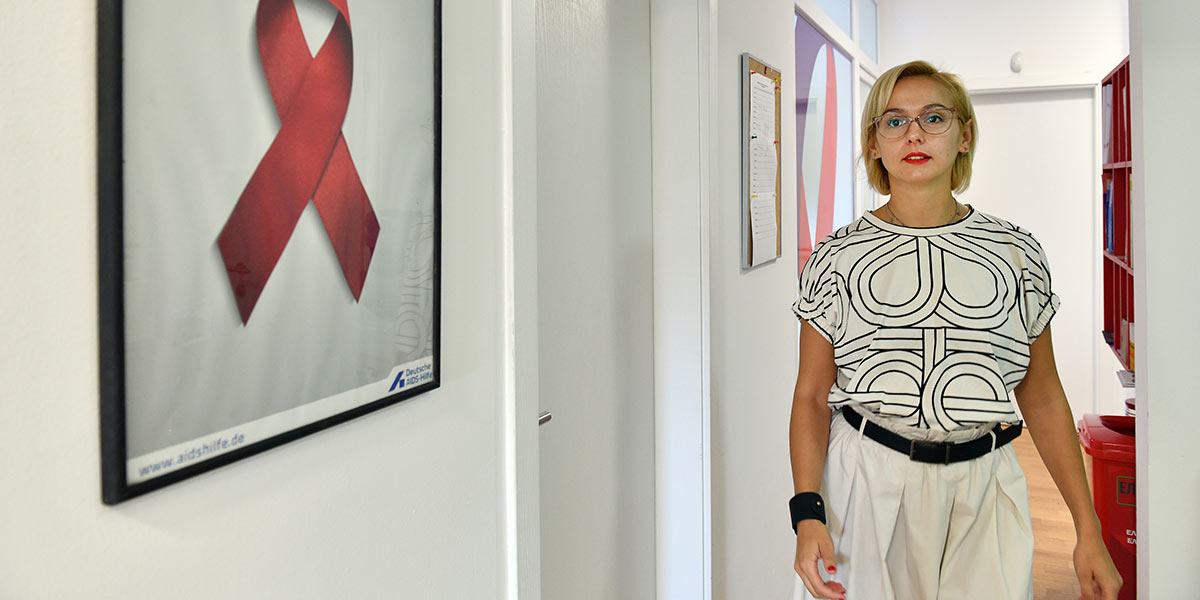On the frontline for safe abortions
Approval in front of a hospital committee and mandatory ultrasound—just to name some examples. Dragana Karovska Chemerska knows what is at stake when abortion rights are threatened. We sat down with the Macedonian activist for a conversation about how to stand up for safe and legal abortions.

The right to a safe abortion cannot be taken for granted. In many places across the world, abortion is illegal or inaccessible. This forces women to carry out unwanted pregnancies or attempt unsafe abortions, both of which can have serious consequences for their health and even lead to death.
“Abortion is an essential health care service, where only women should have the final word regarding their physical and mental health, and regarding their own life,” says Dragana Karovska Chemerska.
She is a programme manager at HERA—Health Education and Research Association in North Macedonia. HERA was founded in 2000 by six medical students wanting to improve the poor education about HIV and AIDS as well as develop access to medicine and care. Since then, the organisation has become one of the country’s strongest voices for all types of sexual and reproductive health and rights (SRHR). The right to abortion is one of them.
Changing the law
When North Macedonia adopted a progressive law for abortion care in 2019, it came after years of hard work from HERA activists and fellow women human rights defenders in the country.
“It all started in 2008, when the conservative authoritarian government was elected. They started an official anti-abortion campaign in 2010, which resulted in a restrictive abortion law adopted in 2013. Even if activists and experts reacted quickly, it was no use—the law was fast-tracked, completely against parliamentary rules of procedure,” says Dragana.
Today, abortion in North Macedonia is legal during the first twelve weeks of pregnancy and, in special circumstances (for example in case of rape, incest, foetal malformation or for socio-economic reasons) up till week 22. Women no longer have to go through an approval process in front of a hospital commission nor bring proof of sexual assault. They also don’t have to take a mandatory ultrasound and counselling session aimed at persuading them to continue their pregnancy, which included a three-day waiting period. Before, doctors and practitioners could also be severely fined if they broke those rules.
Filling a gap
For years, HERA worked on providing relevant research, organising public protests and informing the public. When an alliance of civil society organisations formed in 2015, it opened the possibility to work with the oppositional political parties and, once the new government was formed in 2017, civil society organisations and medical experts were invited to take part in the reformation of the abortion law.
This, however, does not mean that their work is done.
“Sometimes I think that if we stopped our work for only a month, it would instantly open doors for a lot of restrictions in the field of SRHR. Civil society organisations fill a gap in providing information and service to citizens, when official institutions fail to do so,” says Dragana.
Continuing to work for abortion rights
HERA are now focusing their work on capacity building and awareness raising. They feel that there is a lot to be done in terms of implementing the new abortion law, which, according to Dragana, is in parts “still only words on a paper”. For example, even though medical abortion was introduced in the new legislation, it is currently only available at the University Clinic for Gynaecology and Obstetrics in Skopje.
Dragana says that as a woman, and the mother of a daughter, she feels more personally and emotionally impacted by her job.
“Knowing what it really means and having witnessed the impact of any, even the smallest, restriction in the field of abortion rights, makes me scared. But it also motivates me to continue my work. In countries where there is neither political will, nor understanding of the importance of having reproductive freedom—activists will always be on the front line, fighting for abortion rights and gender equality.”
Kvinna till Kvinna has worked for women’s rights in North Macedonia since 1999. We support and cooperate with several partner organisations, including HERA, to promote sexual and reproductive health and rights, end gender-based violence and defend women’s rights.